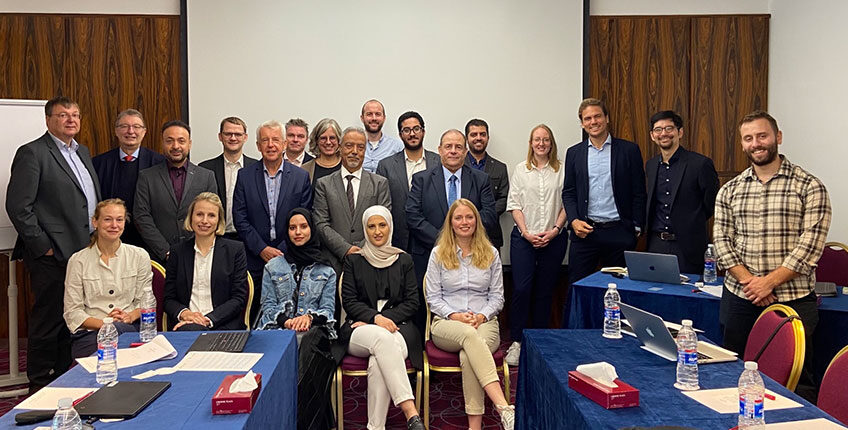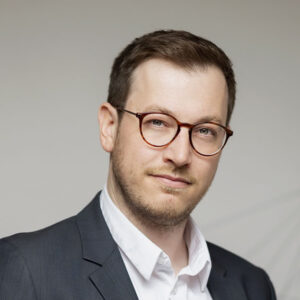Through the ‘German-Jordan Water-Hydrogen Dialogue GJWHD)’, the Federal Ministry for the Environment is fostering German-Jordanian knowledge development and transfer in the fields of water, waste, and green hydrogen. The workshop series has now been successfully completed in Amman.
The goal of the workshops, lasting several days, was to advance a systematic knowledge transfer among experts of both countries in order to address the challenges of sustainable hydrogen production in a water-scarce region and define approaches to solutions. The German Federal Ministry for the Environment, Nature Conservation, Nuclear Safety and Consumer Protection (BMUV) is supporting the initiative under the ‘Environmental Protection Export Initiative’ and wants to contribute to transferring know-how in the field of environmental technologies.
The workshop series plays a central role in both countries, successfully completed from 24-27 October in Amman, Jordan. In addition to insights into German and Jordanian (waste) water management and recycling, the focus was on hydrogen production in wastewater treatment plants and waste incineration plants. On 26-28 September, the first workshop was held in Wuppertal with excursions to application cases of the partners on site.
Now the results obtained from both workshops must be consolidated and their transferability to other application cases figured out for other application cases with similar conditions. The resulting documents on (waste) water and hydrogen industries will be published in German, English as well as Arabic.
NOW GmbH actively accompanied the workshop series and gave a presentation on the project’s funding opportunities under the ‘Environmental Protection Export Initiative’ with a focus on ‘green hydrogen and fuel cell technologies for decentralised energy supply’.
About the German-Jordan Water-Hydrogen Dialogue (GJWHD)
Jordan lies in a region offering huge advantages for hydrogen production. The great potential for renewable energies in particular, can facilitate the manufacture of green hydrogen. Common electrolysis processes require however, pre-purified water. This resource is very limited in arid regions such as Jordan in particular. Hydrogen production in such countries risks exacerbating existing water use conflicts.
About EXI
The funding focus of the ‘Environmental Protection Export Initiative‘ (EXI) is benefit for both the environmental and people. It is precisely this priority that the programme’s name conveys more accurately, as German Green Tech expertise will be exported for more environmental protection, higher environmental standards and better living conditions.
The funded projects are to contribute to the development, coordination, communication and application of standardized – both existing and global – environmental standards and the creation of suitable framework conditions for their implementation. The specific need for support for the target country is also an important component of the objective. Activities to disseminate environmental knowledge, awareness and capacity-building should be specifically supported, in order to contribute to sustainable development and thus, achievement of the sustainability targets of Agenda 2030 (with a special focus on Sustainable Development Goals (SDGs).
Further information
More on EXI and the activities of NOW GmbH
Photo: GJWHD workshop in Amman, organised by the Wuppertal Institute, with representatives from the Jordanian Ministry for Energy, Transport, Water and Environmental Protection as well as the Friedrich Ebert Foundation, GIZ and NOW GmbH.


